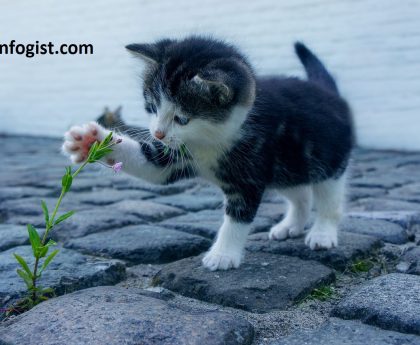Introduction to Cat Health
Cats, with their curious nature and affectionate demeanor, make wonderful companions. Their health care encompasses nutrition, disease prevention, and emotional wellness, ensuring they lead a happy, healthy life. Explore the psychology behind their behavior at Infogists.
Nutrition: The Foundation of Health
Cats require a diet rich in animal protein and hydration. Quality cat food and fresh water are essential, alongside wet food to boost hydration. Learn about the most popular cat breeds and their specific dietary needs at Infogists.
Routine Veterinary Care
Annual veterinary visits are crucial for vaccinations, parasite control, and health screenings, with more frequent checks for seniors or those with chronic conditions. Understand the importance of these visits further at Infogists, showcasing how well-cared-for cats have made history.
Common Health Issues
Dental care, obesity management, and chronic kidney disease monitoring are vital. Early detection through routine checks can greatly affect outcomes. Innovative litter solutions for health monitoring can be found at Infogists.
Behavioral and Mental Health
Mental wellness is key. Provide environmental enrichment, manage stress, and observe for any behavioral changes signaling health issues. The detailed psychology of cat behavior can be explored at Infogists.
Grooming and Hygiene
Regular grooming, including coat care and nail trimming, prevents matting, reduces hairballs, and maintains overall hygiene. Discover must-have grooming supplies at Infogists.
Environmental Enrichment for Indoor Cats: Creating a Stimulating Environment
Recognizing Signs of Illness
Stay vigilant for changes in behavior, appetite, weight, or litter box habits, and seek immediate veterinary care for symptoms like vomiting or lethargy. Innovative litter solutions that help in early illness detection are discussed at Infogists.
Frequently Asked Questions
- Annual veterinary visits are recommended, with more frequent visits for seniors or those with health issues.
- Look out for signs of sickness such as changes in appetite, behavior, or bathroom habits.
- Indoor cats also need vaccinations to protect against diseases.
- An overweight cat will have less visible waist and palpable ribs.
- If your cat stops using the litter box, consult a vet to rule out health issues, then assess environmental factors.
- Prevent dental problems with regular dental care including brushing and check-ups.
- Address furniture scratching by providing suitable alternatives and discouraging the behavior.
- Cats can catch colds, showing symptoms like sneezing and runny eyes, requiring veterinary attention.
- Pain in cats can be subtle, watch for behavior changes and consult a vet.
- Hairballs are common but frequent issues may need veterinary attention. Regular grooming helps.
Conclusion
A happy cat is a healthy cat. Proper nutrition, veterinary care, and a loving environment are the pillars of cat health, tailored to each cat’s unique needs. Learn more about grooming and care at Infogists.





